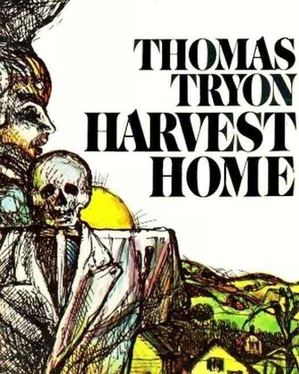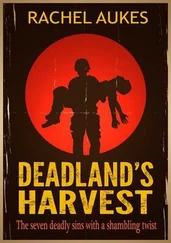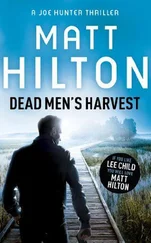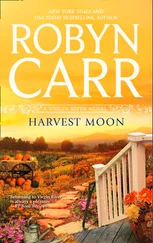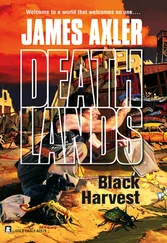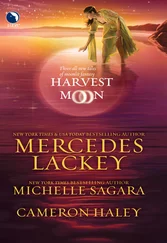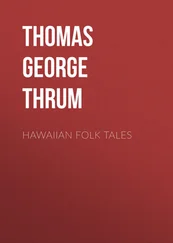Thomas Tryon - Harvest Home
Здесь есть возможность читать онлайн «Thomas Tryon - Harvest Home» весь текст электронной книги совершенно бесплатно (целиком полную версию без сокращений). В некоторых случаях можно слушать аудио, скачать через торрент в формате fb2 и присутствует краткое содержание. Жанр: Ужасы и Мистика, на английском языке. Описание произведения, (предисловие) а так же отзывы посетителей доступны на портале библиотеки ЛибКат.
- Название:Harvest Home
- Автор:
- Жанр:
- Год:неизвестен
- ISBN:нет данных
- Рейтинг книги:5 / 5. Голосов: 1
-
Избранное:Добавить в избранное
- Отзывы:
-
Ваша оценка:
- 100
- 1
- 2
- 3
- 4
- 5
Harvest Home: краткое содержание, описание и аннотация
Предлагаем к чтению аннотацию, описание, краткое содержание или предисловие (зависит от того, что написал сам автор книги «Harvest Home»). Если вы не нашли необходимую информацию о книге — напишите в комментариях, мы постараемся отыскать её.
For Ned and his family, Cornwall Coombe was to be come a place of ultimate horror.
Harvest Home — читать онлайн бесплатно полную книгу (весь текст) целиком
Ниже представлен текст книги, разбитый по страницам. Система сохранения места последней прочитанной страницы, позволяет с удобством читать онлайн бесплатно книгу «Harvest Home», без необходимости каждый раз заново искать на чём Вы остановились. Поставьте закладку, и сможете в любой момент перейти на страницу, на которой закончили чтение.
Интервал:
Закладка:
I went across the roadway in the direction of Penance House, where I had seen some of the men disappearing. Wondering what had taken them there, I walked past the post office, and when I heard low voices from behind the barn next door, I went to investigate. Abruptly the voices stopped. In the stillness, I could feel the same prickling at the base of my neck I had felt that morning, and a lifting of the hairs along my forearms. An uncanny feeling, telling me something was about to happen. I took several steps toward the barn, then halted, riveted by a sound I instantly recognized, climbing to a terrible pitch, a wild cry, rising upward and outward as though from the heart of a bell, to float, then to die in the air, trailing away to nothingness. A pair of swallows, alarmed, took abrupt flight from the eaves of the barn, arcing out against the sky, dipping and swooping past my vision. I rounded the corner of the barn and was confronted by a baffling semicircle of backs. No one turned. Why so still, these men and boys, why so grave, so silent?
Then I saw the child, and thought at first she must be hemorrhaging, so red were her arms. I saw Will Jones’s simple farmer’s face looking at me. In hat and overalls, he stood meekly in the center of the circle, the handle of his sickle clasped loosely in one hand, the sharp silver crescent gone red. At his feet lay the felled sheep; below the red wool its thin legs still jerked. The child knelt in the dust, busily engaged as she gazed dreamily down at the red mass of viscera she held in her palms, her arms red to the elbows.
She raised her blank face and, as though waking from a dream, peered around the circle of men stolidly looking upon her and upon the red maw of the sheep’s cleaved belly and upon the still-palpitating entrails she tenderly cupped in her hands. Dripping red, the glossy tubular glands and bulgy membranes slid about and slowly slipped through her splayed fingers and fell back into the parted red cavity beneath them. Never removing her eyes from her hands, she raised them palms upward before her, toward the sky, their redness trembling against the blue. There was no sound, only the dry rattle of the watchers’ breath trapped in their throats; one man coughed, another blew his nose into a bandanna. Still the red hands remained outstretched; as if in a trance, the child rose and began a slow circuit, her eyes glazed, uttering not a word as she moved around the circle of younger men.
Stiffly she walked past young Lyman Jones, past the Tatum boys, past Merle Penrose, past several others, until she stood before Jim Minerva. A faint sign of recognition appeared in her face, a perceptible widening of the eyes, a murmur in the throat. Her hands moved slightly as if to touch him; then she passed on in her dream and in her dream stopped again, reaching out her hands and laying their redness against the cheeks of Worthy Pettinger.
A sigh, a murmur; stillness. The whir of insect wings.
When she took the hands away, a replica of each palm lay upon Worthy’s flesh, and as she slowly turned, she dropped her hands almost to her sides; not quite, for in her dream something told her to hold them away from her dress. Some of the men gathered closer to Worthy-pale now around his bloody marks-and thumped him on the shoulders, congratulating him, while others dragged the sheep aside, leaving a smeared trail of red upon the brindled ground. Several men lit up their pipes, scratching blue-tip matches on the seats of their overalls, exchanging nods and low remarks. Out on the street a car backfired, jolting me into shocked reality. I looked again, saw dust and straw and blood, heard the dull buzz of flies, the dry hiss as someone took breath in through his teeth, smelled the stench of the animal. The women came running from the Common in pairs and groups, looking at the ring of men, all amazed.
“Did she choose?” they wanted to know. Who? Who was it? Was it Jim? Jim Minerva? “No,” said the men, shaking their heads, moving aside, and “Praise be!” the women cried, seeing the marked boy. They kissed him, hugged him, bore him away, the men following, until there was no one behind the barn except me.
And the gutted sheep.
And Missy Penrose.
Breathing through her mouth, she was making strange, incomprehensible sounds as she stared at the open cavity. “Mnn — mean-um-nmm-” Where all had been red before, now a black liverish-looking bile was running from the rent tissue. She stopped, put her fingers into it, brought them out bloodier, darker, held them against the sky, her body going rigid and beginning a tremulous shaking.
“Mean-um-nmm-mean-’’
Her eyes rolled upward in their sockets; a slight spittle appeared at the corners of her mouth, became a froth. She twitched, jerked, then a stiff arm rose, a red finger pointed at me. A rising breeze caught her hair, lifted it across her eyes; she brushed it away; red appeared on her forehead like a stigma.
I stared back, feeling the same chill again, the same cold sweat. Wind was whipping the grass at her feet. I said nothing. She said nothing. Her eyes were glassy, blank; I knew she could not see me. Yet she saw-something. Then, still pointing, red, she began screaming. I stood frozen in terror. From the Common came the tumult of celebration. No one had seen, no one saw. She was screaming louder than I thought it possible for a child to scream, and, screaming, she pointed.
She stopped. Her arm fell and hung limp, her eyes came into a kind of focus; she stared briefly at the dead sheep, then turned and walked away.
The air began to freshen, the wind to change, and the sky by slight but perceptible degrees to darken, and out on the Common I could see the men standing back as the women rushed to engulf the child, touching and petting her, a murmur sweeping through them, becoming chatter, then acclaim; then, as the child fainted, their voices were suddenly stilled, like birds before a storm.
I went behind the barn and vomited into the grass.
PART TWO: THE DAYS OF THE SEASONING
9
The Days of the Seasoning began, that lax period before harvest when the sun did its final drying of the corn, and the farmers readied themselves for the winter. And as the Days of the Seasoning went by, little by little I cleared my mind, and stopped thinking about the red pointing finger. At least I tried to tell myself I had. I convinced myself it had been nothing, a child having a joke on an outsider. During those early September weeks, I went about the village, sketching, doing water-color studies, and telling myself the incident had had no meaning. Sometimes I would see her-behind her gate, on the Common, along the road-but it was as if nothing had happened. So I told myself nothing had.
Though my perceptions might have sharpened since then, it is perhaps because I have learned the art of substituting one thing for another: it is the law of compensation put into sober practice. Later I was required by force of circumstance to negotiate a painful series of readjustments, but in that early autumn my only concern was the business of painting that small but particular corner of New England called Cornwall Coombe. It was all bright then, illuminated by the light I saw it with, and the brightness gladdened my painter’s eye. The light in cities is flatter, grayer, less defined. In the country it was quite different, an evocation of all the glowing light I had ever wanted to record, like some rare golden elixir that had been poured over the hills and fields. There were few grays in my palette, but an abundance of yellows and ochers and deep umbers with which I slopped and spattered the gessoed panels I painted on, working in a fury of haste to capture what I was seeing.
I felt I was becoming a fixture in the village, accepted not because I was the same as they, but because I was different, because I could “draw” things. I was respected because of my work, and because they sensed I wanted nothing more than to be able to put onto a board with brush and color the life I saw around me. And on my part I offered them ungrudging admiration. If I have presented them as picturesque and quaint, I have erred. Countryfolk they were, but a bunch of tough nuts. Dawn-to-dusk, fourteen-hour-a-day workers, unshirking and unstinting, stylish in their own New England right, whose plainest, homeliest task became a kind of ritualistic act: the quartering of an apple, the whittling of a stick, the laying of a brick. I appreciated them for their country wisdom, their humility, their hardiness. The sturdy sons of sturdy fathers. I found them people of simple but profound convictions, and I admired them for their love of the soil, their esteem for their village, their reverence for the past, and their determination to hold on to it at all costs. I liked their forthrightness, their modest know-how, their reticence; if they were worried and wearied by debt, or fearful of natural disaster, they alone knew it, for they never confided such things, except perhaps among themselves. It was the freemasonry of those who live close to the earth, with its harsh, often bitter realities.
Читать дальшеИнтервал:
Закладка:
Похожие книги на «Harvest Home»
Представляем Вашему вниманию похожие книги на «Harvest Home» списком для выбора. Мы отобрали схожую по названию и смыслу литературу в надежде предоставить читателям больше вариантов отыскать новые, интересные, ещё непрочитанные произведения.
Обсуждение, отзывы о книге «Harvest Home» и просто собственные мнения читателей. Оставьте ваши комментарии, напишите, что Вы думаете о произведении, его смысле или главных героях. Укажите что конкретно понравилось, а что нет, и почему Вы так считаете.
